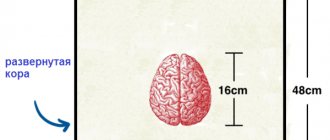Locus of control
In a complex system of psychological mechanisms that determine human life, other types, forms, and types are distinguished. Thus, in social psychology, for example, such psychological mechanisms of social perception are identified as identification, empathy, decentralization, socio-psychological reflection, causal attribution and many others.
Psychological mechanisms have different functional loads and different spheres of action, but they all underlie diverse types and forms of human activity. And therefore, identifying the nature, principles, and conditions of their action is extremely important in understanding human activity.
Some of the important psychological mechanisms of personality activity are the following: locus of control, identification and dynamic balance.
The appearance of the concept of “locus of control” in the psychological literature is associated with the work of J. Rotter (1954), who proposed to distinguish people among themselves in accordance with how they localize control over messages that are meaningful to them. Locus of control is also called the localization of control of volitional effort.
There are two extreme types of such localization, or locus of control: internal and external.
Internal type - a person believes that the events that happen to him primarily depend on his personal qualities, such as competence, determination, level of abilities, and are a natural result of his own activity.
External type - a person is convinced that his successes or failures are the result of external forces such as luck, chance, environmental pressure, other people, etc.
Any individual, according to J. Rotter, occupies a certain position on the continuum defined by these polar types of locus of control.
Locus of control is considered by Rotter and his followers as a special, fundamental type of generalized expectations, as “the degree to which a person understands the causal relationships between his own behavior and the achievement of what he wants.” According to Rotter, the internality and externality of the locus of control are stable properties of the personality, formed in the process of its socialization.
Experimental data indicate that internals exhibit greater social activity; they, unlike externals, are more consistent in their behavior. Internals exhibit greater cognitive activity. They are more productive in decision-making situations and situations involving risk, showing a greater willingness to delay immediate, easily accessible pleasure in order to achieve a distant, but more valuable good.
External people are more often characterized by suspicion, anxiety, depression, aggressiveness, conformity, dogmatism, authoritarianism, unprincipledness, cynicism, and a tendency to deceive.
Also interesting is the frustration theory of S. Rosenzweig, according to which, in particular, people differ in type of behavior. In ordinary everyday situations, they tend to react to difficulties in different ways:
- Intrapunitive reaction - a person constantly blames himself;
- Extrapunitive reaction - attribute responsibility to external circumstances surrounding;
- Impulsive reaction - they adhere to a conciliatory position, without blaming themselves or others.
So, the concept of locus of control allows us to trace significant moments of activity in behavior, relationships, orientation and activities of people.
External locus of control and internal locus of control
External and internal locus of control So, some people expect (believe, think, are sure) that they themselves control the reinforcements in their lives. In other words, they are confident that whether they receive a reward or punishment for their actions depends only on themselves. Such people exhibit an internal position and can conditionally be called internals.
Other people expect (believe) that no matter what effort they make, receiving reinforcement does not depend on them. Whether they are punished or rewarded depends on all sorts of external factors, from the weather to the opinions and will of other people. Such people can conditionally be called externalists.
Thus, knowing what kind of expectation (internal or external) a particular person has in a given situation, we can predict his behavior. From the internal we expect greater stability, purposefulness and independence in a specific situation, and from the external we expect greater social conformity, the desire to make contact and seek a common language with other people.
Rotter personality locus of control, locus of control test and technique
Locus of control is a psychological factor that characterizes a particular type of personality. It is a person’s tendency to attribute responsibility for events in life and the results of his activities to external forces (external, external locus of control) or to his own abilities and efforts (internal, internal locus of control).
People with an external locus of control, who are inclined to explain the consequences of their actions by the influence of circumstances, are usually called externalists, since they attribute responsibility for their activities exclusively to external conditions. The opposite type is internals. People of this type consider only themselves responsible for the results of their activities. Even if the circumstances are unfavorable, the internal will not make excuses for mistakes or failures.
People with an internal locus of control are more self-confident, consistent and persistent in achieving their goals, balanced, friendly and independent. The tendency to an external locus of control, on the contrary, manifests itself in uncertainty, imbalance, anxiety, suspicion, conformity and aggressiveness.
It would seem that the position of externals is more convenient and should provide them with a more favorable position in the social environment.
However, numerous psychological observations and experiments have revealed a consistent pattern: internals more often achieve success in creative and professional activities, are less anxious and aggressive, and are able to more staunchly defend their principles than externals.
Internals are less suspicious in relationships and more often inspire trust when achieving their goals. There are practically no “pure” internals or externals. Every person has a share of confidence in their strengths and abilities, and a share of psychological dependence on circumstances.
Scales: externality, internality
Purpose of testing: identifying the locus of control of respondents.
Test instructions
Read each statement in pairs and decide which one you agree with most. On the answer sheet, circle one of the letters - “a” or “b”.
Test – locus of control by J. Rotter. Personal locus of control. J Rotter's technique
Locus of control is a psychological factor that characterizes a particular type of personality. It is a person’s tendency to attribute responsibility for events in life and the results of his activities to external forces (external, external locus of control) or to his own abilities and efforts (internal, internal locus of control).
People with an external locus of control, who are inclined to explain the consequences of their actions by the influence of circumstances, are usually called externalists, since they attribute responsibility for their activities exclusively to external conditions. The opposite type is internals. People of this type consider only themselves responsible for the results of their activities. Even if the circumstances are unfavorable, the internal will not make excuses for mistakes or failures.
People with an internal locus of control are more self-confident, consistent and persistent in achieving their goals, balanced, friendly and independent. The tendency to an external locus of control, on the contrary, manifests itself in uncertainty, imbalance, anxiety, suspicion, conformity and aggressiveness.
It would seem that the position of externals is more convenient and should provide them with a more favorable position in the social environment.
However, numerous psychological observations and experiments have revealed a consistent pattern: internals more often achieve success in creative and professional activities, are less anxious and aggressive, and are able to more staunchly defend their principles than externals.
Internals are less suspicious in relationships and more often inspire trust when achieving their goals. There are practically no “pure” internals or externals. Every person has a share of confidence in their strengths and abilities, and a share of psychological dependence on circumstances.
Scales: externality, internality
Purpose of testing: identifying the locus of control of respondents.
Test instructions
Read each statement in pairs and decide which one you agree with most. On the answer sheet, circle one of the letters - “a” or “b”.
Stimulus material:
| № | Option “a” | Option “b” |
| 1 | Children get into trouble because their parents punish them too often. | Nowadays, troubles happen to children most often because parents are too gentle with them. |
| 2 | Many failures come from bad luck. | People's failures are the result of their own mistakes. |
| 3 | One of the main reasons why immoral acts are committed is because others tolerate them. | Immoral acts will always happen, no matter how hard others try to prevent them. |
| 4 | In the end, people get the recognition they deserve. | Unfortunately, a person’s merits often remain unrecognized. |
| 5 | The idea that teachers are unfair to students is false. | Many students don't realize that their grades can depend on random circumstances. |
| 6 | The success of a leader largely depends on a successful combination of circumstances. | Capable people who did not become leaders did not use their capabilities themselves. |
| 7 | No matter how hard you try, some people will still not like you. | Anyone who has failed to win the sympathy of others simply does not know how to get along with others. |
| 8 | Heredity plays a major role in shaping human character and behavior. | Only life experience determines character and behavior. |
| 9 | I have often noticed the truth of the saying: “What happens, cannot be avoided.” | In my opinion, it is better to make a decision and act than to rely on fate. ! |
| 10 | For a good specialist, even testing with passion does not present any difficulties. | Even a well-trained specialist usually cannot withstand testing with bias. |
| 11 | Success is the result of hard work and has little to do with luck. | To succeed, you need to seize the opportunity. |
| 12 | Every citizen can influence important things; government decisions. | Society is run by people who are promoted to public positions, and the average person can do little. |
| 13 | When I make plans, I am generally convinced that I can carry them out. | It is not always prudent to plan far ahead because much depends on how circumstances turn out. |
| 14 | There are people about whom we can safely say that they are bad. | There is something good in every person. |
| 15 | Making my dreams come true has nothing to do with luck. | When they don’t know what to do, they toss a coin. In my opinion, you can often resort to this in life. |
| 16 | People often become leaders through a happy coincidence of circumstances. | To become a leader, you need to be able to manage people. Luck has nothing to do with it. |
| 17 | Most of us cannot influence world events in any serious way. | By taking an active part in public life, people can control events in the world. |
| 18 | Most people do not understand how much their lives depend on random circumstances. | In reality there is no such thing as luck. |
| 19 | You should always be able to admit your mistakes. | As a rule, it is better not to highlight your mistakes. |
| 20 | It's difficult to know whether a person really likes you or not. | The number of friends you have depends on how well-liked you are to others. |
| 21 | In the end, the troubles that happen to us are balanced by pleasant events. | Most failures are the result of lack of ability, ignorance, laziness, or all three combined. |
| 22 | If you put in enough effort, formalism and callousness can be eradicated. | There are things that are difficult to fight, so formalism and callousness cannot be eradicated. |
| 23 | Sometimes it is difficult to understand what managers are basing their decisions on when they nominate a person for promotion. | Rewards depend on how hard a person works. |
| 24 | A good leader expects his subordinates to decide for themselves what they should do. | A good manager makes it clear what each subordinate's job is. |
| 25 | I often feel like I have little influence over what happens to me. | I don't believe that chance or fate can play an important role in my life. |
| 26 | People are lonely because they are not friendly to others. | It is useless to try too hard to win people over: if they like you, they like you. |
| 27 | A person's character depends mainly on his willpower, | A person's character is formed mainly in a team. |
| 28 | What happens to me is the work of my own hands. | Sometimes I feel like my life is moving in a direction beyond my willpower. |
| 29 | I often cannot understand why leaders act the way they do. | Ultimately, the people who work in it are responsible for the poor management of an organization. |
Processing and interpretation of test results
Key to the test
• Externality: 2a, 3b, 4b, 5b, 6a, 7a, 9a, 10b, 11b, 12b, 13b, 15b, 16a, 17a, 18a, 20a, 21a, 22b, 23a, 25a, 26b, 28b, 29a.
• Internality: 2b, 3a, 4a, 5a, 6b, 7b, 9b, 10a, 11a, 12a, 13a, 15a, 16b, 17b, 18b, 20b, 21b, 22a, 23b, 25b, 26a, 28a, 29b. The total and maximum score for internality and externality is 23, since 6 out of 29 questions are background questions. The direction of the locus of control should be judged by the relative excess of the results of one dimension over another.
Interpretation of test results
In the practice of psychodiagnostics, locus of control is used to judge the cognitive style manifested in the field of learning, including professional learning. Since the cognitive components of the psyche are present in all its phenomena, ideas about the locus of control also extend to the characteristics of the individual in his activities.
Externals are characterized by externally directed defensive behavior; they prefer to have a chance of success as an attribution of the situation . In general terms, this indicates that any situation is externally desirable as externally stimulated, and in cases of success, a demonstration of abilities occurs.
The externalist is convinced that his failures are the result of bad luck, accidents, and the negative influence of other people. Approval and support for such people are very necessary, otherwise they work worse and worse. However, one should not expect special gratitude for sympathy from externals.
Internals most often attribute the situation to the belief that their successes or failures are not accidental, depending on competence, determination, level of abilities and being a natural result of purposeful activity and initiative.
In structuring the process of goal formation and its strategies, the leading motivation for internals is the search for ego identity, independently and orthogonally in relation to extroversion or introversion. Due to greater cognitive activity, internals have broader time perspectives, covering a significant variety of events in both the future and the past. At the same time, their behavior is aimed at consistently achieving success through the development of skills and deeper processing of information, setting tasks of increasing complexity. The need for achievement, therefore, tends to increase, associated with an increase in the values of personal and reactive anxiety, which is a prerequisite for possible greater frustration and less resistance to stress in cases of serious failures. However, in general, in real, externally observable behavior, internals give the impression of being quite confident people, especially since in life they often occupy a higher social position than externals, as J. Digman, R. Cattell and J. Rotter believe. For externals, a connection is found with emotional instability and practical, unmediated thinking; for internals, emotional stability and a tendency to theoretical thinking, abstraction and synthesis of ideas are noted.
In general, in accordance with the relationship between the parameters of activity and reactivity (and in connection with motivation for achievement and attitude), the vector of externality-internality coincides with the vector of reflection.
Source: https://1-source.ru/diagnostika/lokus-kontrolya-dzh-rottera.html
What is Locus of Control? How do you see problems?
I twist and turn - I want to control. An article about an excellent tool for self-management and self-growth - Locus of Control. Let's talk about everything a beginner needs.
In childhood, many (if not all) heard a response phrase from adults when they said that someone also did like you: “And you answer for yourself, don’t look at others!” This rant has something to do with a pretty deep concept in the field of psychology called locus of control.
What is Locus of Control
Locus of control is the severity of a person’s desire to influence certain events, the relationships of others, and other external or internal factors.
For example, let's take a situation: Vladimir has little or no attention from the opposite sex. If he believes that the reason for this is his lack of interest, bad character, excess weight, unsuccessful job, lack of prospects, etc. etc., that is, the problem with it is paying attention 100 percent to internal factors.
If the man or woman from our example considers the representatives of the opposite to be to blame (all men are goats, all women are bitches); parents who did not leave an inheritance, government, place of residence, then this is a locus of control aimed at external factors.
Image. Intellectual map “Internal locus of control”
Of course, there are very few people who are inclined to attribute the causes of their problems (and not only problems in the sense of failures, but in general the influence on life) only to themselves or only to the world around them.
More often this happens in a mixed way: basically it’s something else, and I’m “guilty” a little.
Also, different areas of life may differ in locus of control: in work they pay attention to themselves, in relationships with others, and vice versa.
There is an excellent course on this topic on Stepika “Flexible Thinking”, which covers the following issues: Creative thinking, Systems thinking, Critical thinking, Entrepreneurial thinking, Effective learning.
Internal type and external type
The division into two types is considered more professional: internal and external. They can be given the following characteristics
Internal: individual qualities; the efforts made in anything: from working hard to going to the gym to improve your figure; presence or absence of experience; knowledge and skills and so on.
External: circumstances independent of oneself; the influence of specific others; influence of housing, work, environment; traditions and customs and so on.
So:
- the tendency to attribute performance results to external factors is called external locus of control (externality).
- the tendency to attribute performance results to internal factors is called “internal locus of control” (internality).
It may seem that a person with an internal locus is wiser, fairer, strong-willed and generally lives the right way. But in reality this is not clear. In some situations, a person must highlight and accept external circumstances, as well as transform them to his advantage.
The balance between external and internal locus of control is important. Let's take as an example the story of one Sasha: Sasha was too ambitious, she graduated from the journalism department of one of the three best educational institutions in her city, took rapid steps up the career ladder, and by the age of 27 she had already closed most of her material desires.
I lived by the principle that it’s always my fault if something goes wrong, because then I can control the situation. But Sasha did not distinguish between problems that could be controlled and problems that could not: as a result, she overwrought herself at such moments, after two years she suffered emotional burnout and lost 2-3 years for rehabilitation. The results began to decline.
But the whole point is that this becomes fully possible only if a person has an internal direction. Having it, he gradually evolves and can reliably, and not subjectively, determine where circumstances are involved, dependent or independent of him.
Let's formulate general recommendations for forming an internal locus of control.
How to develop internal locus of control?
A short guide on how to stop being a victim
Most often, a person with an external direction consciously and subconsciously considers himself a Victim. He is convinced of the impossibility of influencing his own life.
Source: https://1timer.ru/aya-psihologiya/lokus-kontrolya/












